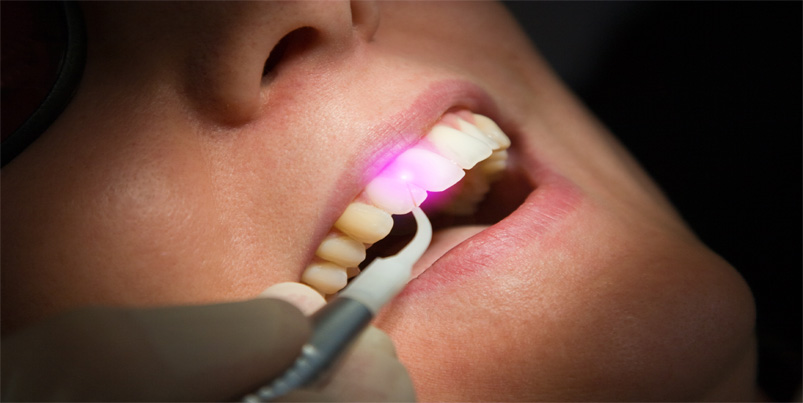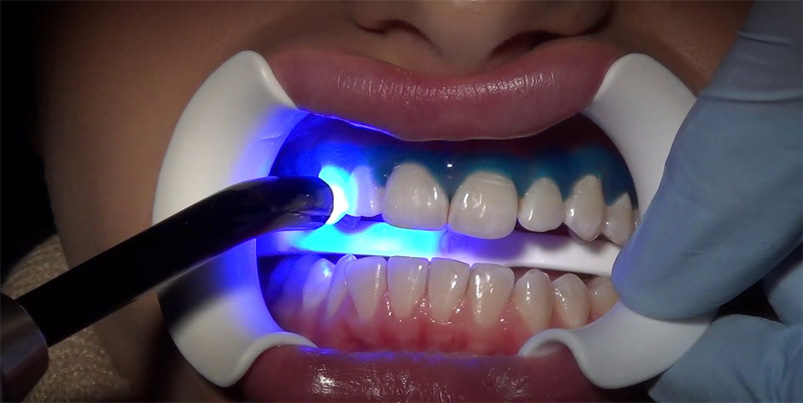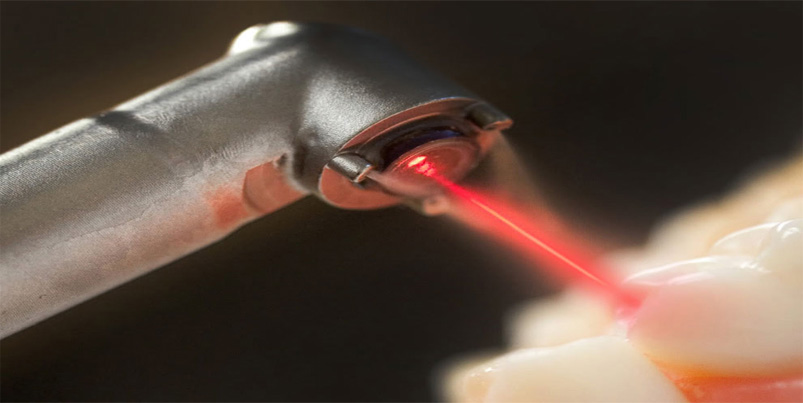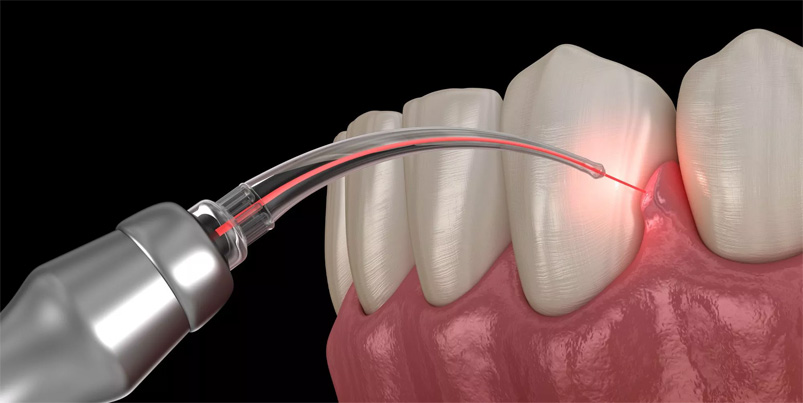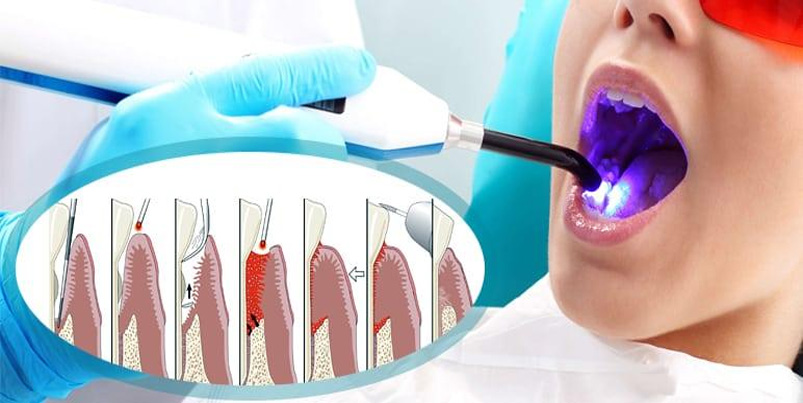Laser Treatments
Laser Treatments
What are laser treatments?
Lasers are a relatively new feature of dentistry. Dental lasers use focused beams of light to remove or reshape tissue during restorative treatments, cure bonding agents and activate bleaching agents during teeth whitening. Because your dentist can have precise control over power output and exposure times, laser dentistry can help enhance treatment outcomes. Lasers can help reduce bleeding and swelling, as well as the risk of infections. In some cases, they can help prevent healthy teeth and gum tissue from being affected during the procedure. Laser treatments can reduce or eliminate the need for dental drills, which may also help you feel more at ease.
What are the conditions that can be addressed through laser treatments?
Tooth decay – Lasers can help cut and shape tooth enamel more efficiently than dental drills when preparing a tooth for a filling. Lasers may also be used to help a filling bond to the tooth. or to remove decayed tissue during a root canal treatment.
Gum disease – Diseased or inflamed gum tissue can be cut away with minimal effect on the healthy tissue. Lasers can also help expose teeth roots to remove plaque.
Impacted wisdom teeth – Lasers can help cut away gum tissue to expose wisdom teeth that have only partly erupted or are stuck (impacted) in the gum.
Sensitive teeth – Dental lasers can help seal tubules in tooth roots to reduce the tooth's sensitivity to hot and cold food and drinks.
Temporomandibular joint disorders (TMD) – Low-level lasers can help reduce pain and inflammation in the temporomandibular joint and surrounding tissues.
Stained or discoloured teeth – Lasers are sometimes used in professional teeth whitening treatments to activate the bleaching agent and speed up the whitening process.
Gummy smile – If you want to alter the appearance of your smile, your dentist may recommend using laser treatment to help reshape your gum line and remove excess gum tissue to show more of your teeth.
Mouth ulcers – If you have a persistent ulcer or lesion in your mouth, lasers may be used to help reduce pain or to remove tissue for a biopsy.
Benefits of the treatment
- Shorten treatment duration and recovery time
- Minimise bleeding and swelling during surgery
- Reduce scarring of surrounding tissues
- Reduce the risk of infections
- Guide tissue regeneratio
- Reduce discomfort and anxiety
Oral health is overall health
Make sure you are using correct brushing technique
Brushing your teeth at least twice a day is essential – after breakfast in the morning and before going to bed at night.
Spend at least 2 minutes brushing, ensuring that all areas are cleaned – the inside, outside, and biting surfaces of each tooth.
The key is to aim the toothbrush bristles directly at the gum line, rather than the top of the tooth, as this is where plaque starts to form.
Gently move the toothbrush in a circular motion, which will clean away as much plaque from the gums as possible.
Make sure you follow the right diet.
Try to reduce or eliminate the amount of sugary food and fizzy drinks you eat and drink. It converts to acid inside your mouth and can dissolve the
minerals in tooth enamel, causing decay (caries) and eventually holes (cavities).
Acidic foods and drinks can also cause tooth erosion which causes tooth sensitivity, discolouration and cracks over time.
More tips
After every meal, rinse out your mouth with antiseptic mouthwash to help kill germs, or at least water to wash away food debris.
Another handy tip is to clean your tongue as it removes plaque that’s full of bacteria and can cause bad breath. While special plastic tongue scrapers are available at chemists, a toothbrush can be used just as effectively.
Don’t be tempted to crack nuts, rip open a plastic package or even remove a bottle top with your teeth – there’s a risk of chipping or breaking. Remember, use your teeth just for chewing food.


